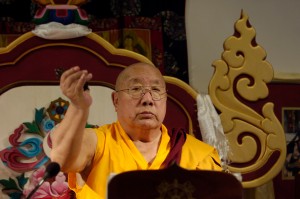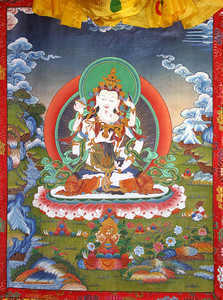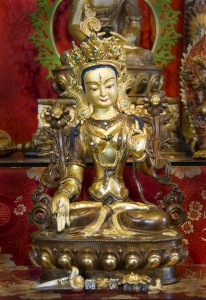
How long does it take to practice and attain the fruit of the path of Dharma? It takes as long as it takes. You cannot measure in time. Some say “oh, I’ve practiced 10 years” great! Keep going. 20 years? Great! Go on wit cha bad self!!! Keep going! 30 years? Super-dooper. A large chunk of life! Keep going!!! It is so easy to delude oneself into thinking that a number is the goal. Actually one should consider their own inner qualities as the watermark. To do this one must have self-honesty. Without honesty there is no way to judge progress. So we must learn to ob serve our own minds and stop relying on the approval of one’s peers. The need for approval is a sickness, not compatible with awakening. It is a deluded and neurotic display depending on separating, dualistic concepts. The desire to give and receive love is different.
Some find a lot of thrill from displaying many words and concepts to insure how well informed they are. This is not what I want. Not for me. I would rather display my efforts on the path as actual accomplishment that is of benefit; like Stupas. They’ll be there after I’m dead. So this result is of great benefit, as many healings and miracles happen, particularly at the great Migure Dorje Stupa in Maryland and the Amitabha Stupa in Arizona.
And here we have as well a monastery founded by me but solely offered to Kyabje His Holiness Penor Rinpoche. It will last until the day his Yangse Rinpoche is educated. Then it goes to him, Tsawei Lama. The property in Arizona and Maryland both will be his to put to use. It is for him. Only him! My Guru!
Since He is a Palyul Throneholder, that will keep it in our lineage after I’m gone, but under his command and none other. This is one of the greatest goals in my life. I want to be sure Kyabje His Holiness Penor Rinpoche is the beneficiary of it all. Lama Khyenno! Only he knows best.
He is my Guru, and his blessing gave rise to all of this by his wish. Once He told me I would find a big white house with columns in front. He said we should buy it, and that the money would come. We did and it did, exactly as he said. What a Lama he was! There was/is no space between us.
Since I first met him he has been the main guide of my life. Even now, as I meditate he is there, Pure Dharmakaya. No one moves me as does he. So I am waiting, hoping, praying for His Holiness Kyabje Penor Rinpoche to return. When he is able to take what I offer his Yangsi Rinpoche will be wealthy and set up to Teach and Empower here in America. This is my dream. When His Holiness returns and is ready, my life goal will be finished.
In my view this is the best way to keep Palyul safe and ongoing. Every blessing came from Kyabje His Holiness Penor Rinpoche. And all should return to him.




